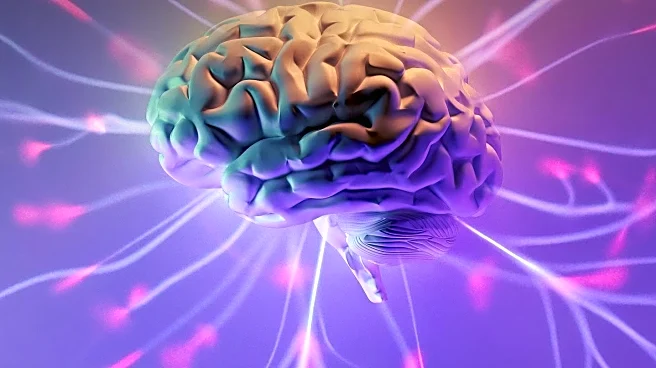What's Happening?
Researchers at the University of Bath and the University of Bristol have developed a new brainwave test, called Fastball EEG, that can detect early signs of Alzheimer's disease in just three minutes. The test records electrical activity in the brain as the person views a series of images, identifying signs of mild cognitive impairment (MCI), which often precedes Alzheimer's. The passive nature of the test means it is less influenced by external factors such as anxiety or language, making it a practical tool for real-world use.
Why It's Important?
Early detection of Alzheimer's disease is crucial for effective intervention and treatment. The Fastball EEG test offers a quick and non-invasive method for identifying individuals at high risk of developing Alzheimer's, potentially allowing for earlier access to treatments that are most effective in the early stages of the disease. This technology could revolutionize the way Alzheimer's is diagnosed, providing a valuable tool for clinicians and improving patient outcomes.
What's Next?
The researchers aim to roll out the Fastball EEG test for use in doctors' offices, memory clinics, and homes, facilitating earlier diagnoses of Alzheimer's disease. Larger clinical validation studies are underway in the U.K. and U.S., involving extensive biomarker coverage to confirm the test's effectiveness. If successful, this tool could become a standard part of the diagnostic process for Alzheimer's, complementing other methods such as PET scans and blood tests.
Beyond the Headlines
The development of Fastball EEG highlights the potential for innovative diagnostic tools to transform healthcare. By providing a quick and accessible method for detecting cognitive decline, this technology could lead to earlier interventions and better management of Alzheimer's disease. The ethical considerations of widespread screening and the implications for patients' privacy and autonomy will need to be addressed as the technology becomes more widely used.










